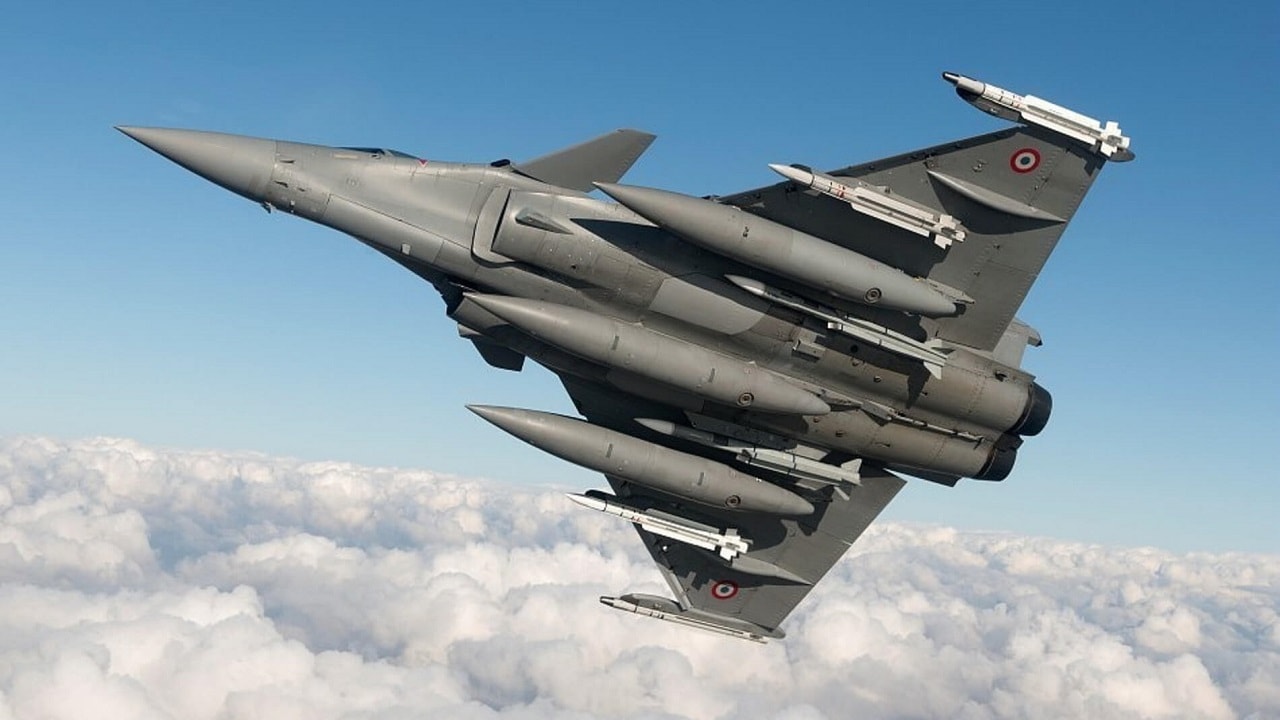Rafale F3-R Fighters: Why Greece Purchased Them And What It Means for Turkey – In the middle of January, the balance in the Aegean Sea shifted as Greece received its first six Rafale F3-R fighter aircraft from France; 18 more are scheduled for delivery in the near future.
Commenting on the arrival, Greek Prime Minister Kyriakos Mitsotakis said that the French aircraft are a “force multiplier that upgrade the country on an operational, technological, and geopolitical level.”
Turkey, Greece’s long-time rival and neighbor, seems to think so, too.
Following October’s G20 summit, Turkish President Erdogan told the media that Turkey had expressed its concern to France about the arms sale. “We [spoke] openly, with a broad agenda,” Erdogan commented. He was politely rebuffed by French President Macron.
Rafale F3-R Fighters: The French factor
The Rafale F3-R Fighter is tailored for air superiority (air-to-air) missions with its canard delta-wing configuration giving it increased maneuverability. However, true to its multi-role nature, the aircraft can also perform in-depth and anti-ship strike missions. These capabilities make it particularly effective in the Aegean and Anatolian space.
In a conflict between Greece and Turkey, the Aegean Sea, with its approximately 1,400 islands and islets, will be one of three possible theaters of operation (the other two being Cyprus and Thrace.) The Rafales will help Greece achieve naval and air superiority in the Aegean. This, in turn, will allow it to threaten the Sea of Marmara and pressure Turkish forces in the eastern Mediterranean, thus alleviating pressure on Cyprus.
The Rafale F3-R Fighter boasts a combat range of 1,150 miles. It can be outfitted with long-range air-to-surface Storm Shadow missiles which can strike targets at distances of 300 miles. In comparison, an F-16 — the mainstay of the Greek and Turkish air forces — has a combat range of approximately 350 miles. The Rafale’s range, makes almost the entirety of Anatolia a target for the Greek air force.
Besides the 24 Rafales, Greece is strengthening its air force by upgrading 83 of its F-16 to Block 72 Viper, the newest configuration of the Lockheed Martin jet. Additionally, it is in talks to purchase F-35 jets.
On the naval front, it will acquire three French Belharra frigates from France, with the option for a fourth. It is also in the process of selecting four corvettes.
As importantly, Greece signed a security agreement with France, with which Ankara has an uneasy relationship. The agreement contains a clause of mutual defense if either party is attacked.
A victim of its own belligerency
Meanwhile, Turkey’s military procurements are suffering some setbacks. In 2019, after receiving the first batteries of Russia’s state-of-the-art S-400 air-defense system, Turkey was kicked out of the F-35 program in response. Turkey had already ordered 30 F-35s, but its order was cancelled.
Further, Ankara has sent a letter of request to purchase 40 more F-16 and about 80 upgrade kits from the US. The request has received stiff bipartisan opposition in Congress owning to Turkey’s aggression in the region, its democratic backsliding and closer relationship with Russia.
A number of European countries also limited arms exports to Turkey after its offensive in Syria. Resultantly, Ankara is trying to expand domestic output to limit its reliance on imports.
Yet, it is not all bad news for Turkey. Germany is currently constructing six Type 214 submarines for the Turkish navy. Greece’s submarine fleet consists of four Type 214s and seven other vessels; Turkey currently has 12 submarines. Therefore, the addition of the six Type 214s will be a major boon to Turkey.
Ankara will also buy an aircraft carrier from Spain. Yet, in a conflict with Greece, the carrier will be limited to the eastern Mediterranean given the confined spaces of the Aegean Sea.
Greece is trying to persuade its two European partners to cancel the deals. It will also purchase seven Lockheed Martin MH-60R helicopters outfitted for anti-submarine warfare to counter the Type 214s.
Rafale F3-R Fighters for Greece Doesn’t Mean an Arms Race
Despite the slew of arms procurements, only one of the two rivals is fully in an arms race against the other.
Turkish defense expenditure and investment are geared towards a number of strategic goals. These include, among others, the elimination of Kurdish PKK forces in southeastern Turkey and People’s Protection Units in northern Syria; supremacy in the eastern Mediterranean; and expansion of its presence in northern Africa. Countering Greece is only one of Ankara’s goals.
On the other hand, Greece’s entire military strategy and defense procurements focuses on deterring and — if deterrence fails — winning a conflict against Turkey. And this singular focus gives it an edge.
Constantine Atlamazoglou works on transatlantic and European security. He holds a master’s degree on security studies and European affairs from the Fletcher School of Law and Diplomacy.

